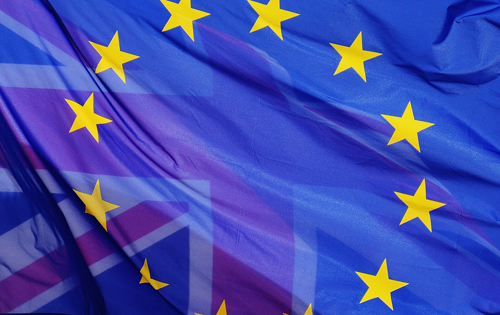The freight industry has now had a few days to gather its wits following the Brexit referendum, in which a narrow majority of UK citizens voted to leave the EU.
Following our brief summary of immediate reactions, here’s what the industry bigwigs had to say over the weekend, in our second round-up.
The IATA report
The International Air Transport Association (IATA) has issued a report (PDF) outlining the effects of the Brexit decision. In the short term the impact will be on the relative price of UK imports and exports, according to the report, while in the long term international trade would be affected, with UK trade volumes potentially falling an estimated 10-20% by 2030.
The number of air passengers is predicted to fall 3-5% by 2020.

The report, citing the Organisation for Economic Co-operation and Development (OECD) for some of these figures, also states that trade costs could increase over time due to “regulatory divergence” and that it could take years for the UK to negotiate new trade deals with EU countries—including aviation agreements.
The possibility is raised of membership of the European Common Aviation Area (ECAA), but the report points out that this will require acceptance of EU aviation law.
Referring to UK and EU leaders, chief executive Tony Tyler says that “one certainty to guide them is the need and desire of people on both sides of that relationship to travel and trade.” He continues, “It is critical that whatever form the new UK-EU relationship takes, it must continue to ensure the common interests of safe, secure, efficient and sustainable air connectivity.”
Other trade associations
The British International Freight Association (BIFA) has also spoken up, stating that it will support its members through any upcoming legislative changes and work to ensure recognition of “the fundamental role that our members’ freight forwarding services […] play.”
The Freight Transport Association (FTA) warns of higher supply chain costs, such as road transport customs carnets to allow goods across international borders, and calls on the government to prioritise international freight in its negotiations as Europe is both the UK’s biggest export market and responsible for a huge proportion of imports.
FTA Ireland is also concerned, as Ireland is the sole EU member sharing a border with the UK.

Olivier Jankovec of the Airports Council International (ACI) in Europe considers it “essential” that the new relationship allows for full integration between UK and EU aviation markets.
Michael W. McCormick, Executive Director and COO of the Global Business and Travel Association (GBTA), has said that the GBTA will continue to educate its members on the impact of the UK’s departure, and will work to ensure that business travellers maintain freedom of movement.
Logistics companies
Shares of transportation and logistics companies, including UPS and FedEx, took hits in trading on Friday. Those two companies were down 2.2% to $104.83 and 3.8% to $151.93 respectively.
However, analysts from Citi, the international investment banking and financial services corporation, suggest that stocks will mostly be insulated from Brexit in the transportation sector due to these companies’ concentration in North America, though FedEx may be viewed as higher risk by investors given its recent acquisition of the European TNT.
UPS has stated that nothing changes in the short term in the way that they do business to and from the UK, expecting new negotiations to take years. DHL expects the transition period to last up to two years.
Elsewhere in the cargo industry, Heathrow Airport is pushing for expansion following the referendum news, claiming that, “Only Heathrow can help Britain be the great trading nation connecting all regions of the UK to the world […] as the UK’s only global hub airport.”



On social media? Why not give us a follow...